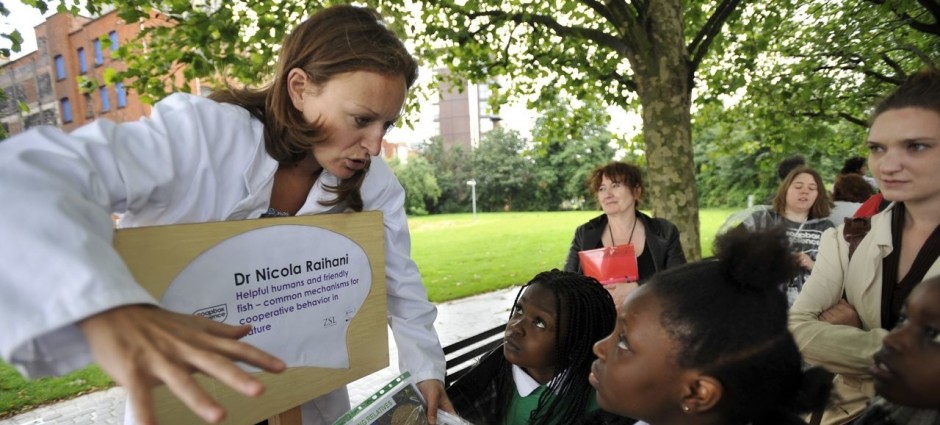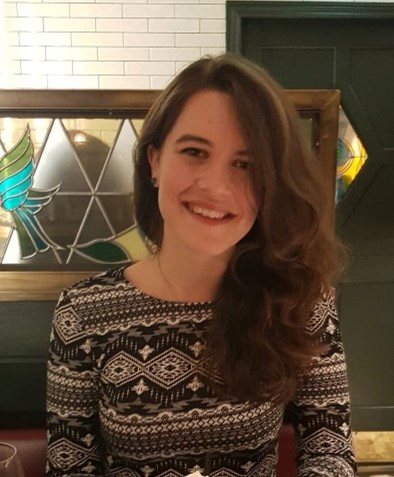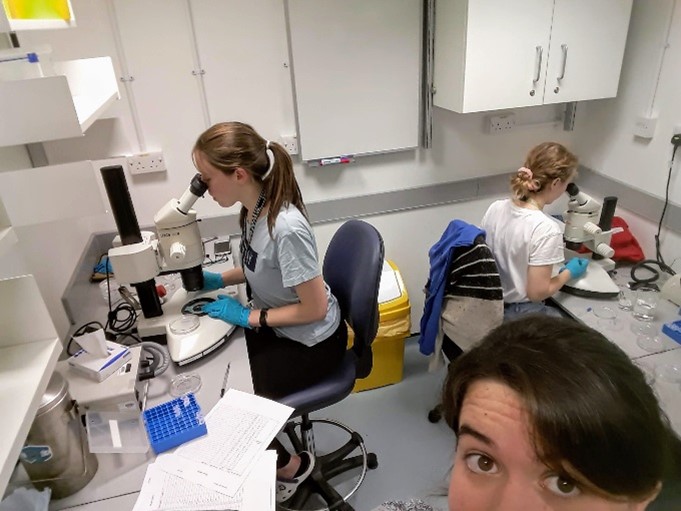Rebekah Boreham is a PhD student in the Biosciences Department at the University of Exeter where she conducts research in ecotoxicology and environmental biology. Her work aims to further our ability to assess the prevalence and effects of chemicals in the environment resulting from human activity. Here we find out why it is important to play a game of rounders in the sand and get Rebekah’s friendship ‘must haves’ for getting the most out of your PhD.
‘It takes a village- the importance of building a support network during your PhD’
“Catch it!”- A rounders’ ball sails through the salty air and is caught by a first year PhD student in a dramatic dive into the sand. There’s a cheer from the remainder of the party who are sat chatting and building sand castles on the sunny Cornish beach. This is how the group of us- a mixed bag of postgrads at various stages of their research degree programmes- have decided to blow off steam. After a stressful few months of vivas, experiments and paper submissions, we’ve driven an hour and a half down the coast to spend a March weekend in Cornwall. This isn’t how I imagined embarking on the third year of my PhD, but so far I’m not complaining.
If there is one piece of advice I could bestow on any newly-minted PhD students, it’s this: make friends. Build a support network. PhDs can be the one of the most rewarding and stressful periods of your life and it’s important to have a close group of friends or family to help you stick out the rough parts as well as celebrate the highs. I’m just over halfway through my PhD and I can’t emphasise enough how much I have lent on my support network already.
A support network can be made up of anyone you like, but there are five key friends that I wouldn’t do without:
- The Work Friend for practical help. From answering a question about paperwork (a PhD is surprisingly bureaucratic!) to assisting you on a marathon 16-hour sampling day. Starting a PhD can feel very much like being thrown in the deep end, a peer who is going through it with you- or better yet, is even just a few months or years ahead of you- can be a valuable guide and a helpful pair of hands.
- The Work Friend with an empathetic ear. For me, my PhD is turning into the most rewarding, but also one of the most stressful, times of my life. There are certain frustrations that only a fellow postgrad can understand- from a strained relationship with a supervisor, to a P value you just can’t get to budge below 0.06- never underestimate the power of a good vent to a friend in the same boat.
- The Non-Work Friend. Whether they are friends or family, keeping in close contact with someone from outside of work can help you gain perspective and remind you that the PhD is not your whole life. It can be difficult sometimes but it’s important to remember that you are not your research. Your self-worth must not be tied to the outcome of your work. I’m the first of my family to do a postgrad degree and it can be wonderfully refreshing to talk to my parents who have nothing to do with scientific research. Sometimes it takes a friend totally removed from the world of academia to remind you that you have a life outside of the lab.
- The Mentor. If you’re lucky, this person could also be your supervisor, but this might not be the case. Building a relationship with some kind of senior researcher in your field is well worth your time. They can be invaluable for providing insight, career advice, or to champion you and put you forward for career opportunities. The main thing I’ve valued my mentor for is ‘the resilience talk’; when everything in your project seems to be going wrong, it’s important to remember that sometimes that’s just how science goes- and it’s especially comforting to hear that from someone who’s been dealing with science for years. If you do have questions about what to look for in a supervisor, I recommend a blog post by The Thesis Whisperer.
- The Twittersphere. If all else fails: reach out to the online community! As well as networking for career opportunities or to share news, twitter and other social media platforms are helpful for connecting with the wider scientific community. A selection of my favourite blogs and twitter accounts (which include @thoughtsofaphd, @Tessa_M_Hill or @ithinkwellHugh) can be helpful in providing advice or amplifying the voices of other women in research. Plus postgrads come up with the best memes.
I chose a happy memory of bonding with my cohort to open this post because I wanted to reflect the joy and optimism. But the fact is that the most intense bonding has happened at the lowest moments, when two of us are trapped in the lab at midnight just trying to get the last samples into the freezer, or when a friend just needed to vent because their paper has been sat on their supervisor’s desk for two months and the deadline is sneaking up.
When I was an undergrad considering a PhD, one of the most common warnings I kept hearing is that a PhD is a lonely experience because no one else is doing your exact project and no one else will know the answers but you. In that respect they would be right, a PhD can be lonely, but there are so many people in the same metaphorical boat as you. I would argue that this has been the least lonesome period of my life; I feel like I am part of a wonderful community of like-minded people who can share my frustrations, but also share my drive and my obsession with the natural world. They say it takes a village to raise a child. I feel like it’s taken a village to turn me into a scientist.



